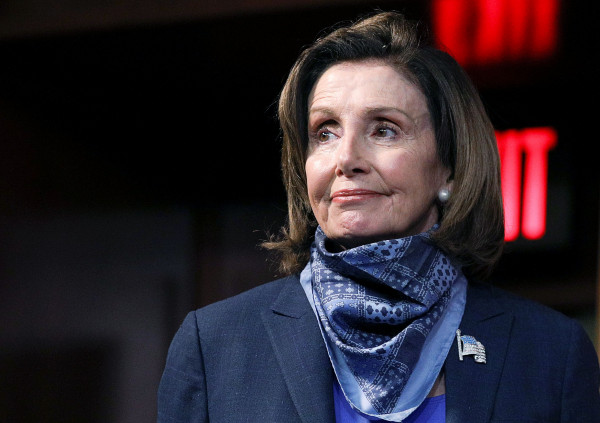House Slated To Pass New Stimulus While Planning To Allot More

The House is set to give a $484 billion package of a pandemic relief fund final passage on Thursday, while the Trump administration and lawmakers have deviated their focus on the next round of stimulus for America's decelerated economy.
The legislation that the House is slated to take up, passed the Senate Tuesday, comprising $320 billion for the Paycheck Protection Program, which is created to help small businesses that are struggling to keep their workers on the payroll. This is widely regarded as a provisionary step as the coronavirus pandemic continues to tighten its deadly grip on the country.
House Speaker Nancy Pelosi announced Wednesday on MSNBC that they are ready to go on to the next bill. The parties are looking at more comprehensive and costly follow-up legislation.
President Donald Trump, who met N.Y. Gov. Andrew Cuomo on Tuesday said funding to state and local governments would be placed under the phase four stimulus, along with money for expanding broadband service and road projects. Trump plans to ask bigger companies to return the emergency loan, Bloomberg reported.
During a White House briefing, the president noted that infrastructure will be a massive part when it comes to rebuilding the nation. Treasury Secretary Steven Mnuchin refused to reveal the price tag attached to the next package at the same briefing, but other governors including Cuomo have urged the federal government to dole out at least 500 billion for state aid alone.
The $484 billion legislation is slated to pass through Congress this week, coming on top of the $2-trillion package that was enacted last month and follows billions of dollars in previously passed measures in an attempt to combat the pandemic. Both, the dollar figure, as well as the scale of the downturn, is historic, with economists hinting at a double-digit contraction as far as gross domestic product in Q2 2020 is concerned.
Capital Economics predicts an unusual 40 percent annualized drop during that period. To make things worse, the unemployment rate is about 17 percent at the moment, reaching the highest since the 1930s Depression era. About 22 million jobless claims have been filed amid the coronavirus pandemic until now, wiping out years of labor market gains.
According to Natixis' economist, Troy Ludtka, this will not be a 1, 2, 3, bill, given that the COVID-19 isn't going to be a couple of month thing. It is imperative, Ludkta says, for the administration and lawmakers to continue shelling out money to combat this problem.













